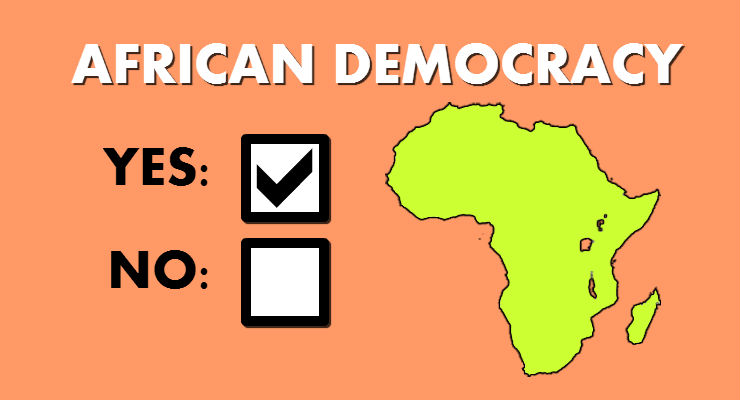
Malians go to the polls on Sunday to determine whether to grant a second term to President Ibrahim Boubacar Keita. Zimbabweans will cast votes Monday in the first election since longtime leader Robert Mugabe was forced to resign in November.
Whether constituents have confidence in the results of these elections – and those in Cameroon in October and the Democratic Republic of the Congo in December– depends on whether they perceive the vote as free and fair.
Much of that responsibility falls to election organizers. In Mali, that’s at least three separate entities. In Zimbabwe, it’s the Zimbabwe Electoral Commission (ZEC), a nominally independent body.
“The challenge many election bodies have is living up to the expectation of independence and the integrity with which they do their work,” said Rushdi Nackerdien, African regional director for the International Foundation for Electoral Systems. The foundation, based just outside of Washington, D.C., provides technical support and guidance for democracies.
“You’ve got a lot of cynicism that has crept into citizens’ belief about democracy,” he added.
Numerous countries have seen increasing attacks on core elements of democracies, including “guarantees of free and fair elections,” the international watchdog group Freedom House reported early this year.
A Gallup poll shows that fewer than half of Zimbabweans (47 percent) “are confident in the honesty of their country’s elections.” While that’s down nine points from two years ago, it is still “the highest rating in any election year in the past decade,” Gallup noted in a Twitter post on Friday.
Zimbabwe preparations
Nackerdien acknowledged the Zimbabwe Electoral Commission (ZEC) has done some things to shore up confidence, such as allowing international observers – including the first European Union team in 16 years – and making voter rolls public.
But ZEC also has been dogged by controversies, including accusations that it favors the ruling Zanu-PF party and that its ballot paper design unfairly benefits incumbent President Emmerson Mnangagwa. The 75-year-old’s chief rival, in a field of 22 presidential candidates, is Nelson Chamisa, a 40-year-old lawyer who leads the opposition Movement for Democratic Change Alliance.
Johnnie Carson, former U.S. assistant secretary of state for African affairs, is part of the joint election observer delegation of the International Republican Institute and the National Democratic Institute. He told VOA’s Zimbabwe Service that opposition parties are concerned about “how the tabulations would be handled.”
U.S. Senator Jeff Flake, a Republican lawmaker, also will be among the observers.The United States has said lifting sanctions – imposed on Mugabe and those close to him for allegedly rigging votes and violating human rights – would depend in part on whether the southern African country’s elections are fair and transparent.
More than 5 million Zimbabweans are registered to vote Monday in the general elections and tightening presidential contest. A candidate must get at least 50 percent of all votes to win the presidency, or it will be decided by a runoff on Sept. 8.
Fears persist about election-related attacks, which killed dozens in 2008. IFES’ Nackerdien said special electoral courts “have been set up that will be looking at aggressive perpetrators of violence.”
Mali elections
In Mali, the West African country’s 8 million registered voters can choose Sunday among 24 candidates for president. If no candidate wins a majority, the election will be decided in an Aug. 12 runoff. The country has experienced persistent violence since a 2012 separatist uprising in the north, with terror attacks plaguing the northern and central regions.
Voters needn’t be fearful, according to the government’s Ministry of Territorial Administration, one of several entities in charge of the election. Souleymane Amadou Sangare, its director general, told VOA this week that the government “will assume its responsibility when it comes to security.”
The IFES’ Nackerdien cited a challenge in “holding elections in such an insecure environment,” noting that “in some parts of the Malian countryside … you don’t even have precinct administrators who are looking into preparations.”
Corruption also is an issue in Mali elections, prospective voters told VOA’s Bambara Service earlier this week.
In the capital city of Bamako, a woman said she was paid the equivalent of $3 to attend a campaign rally earlier this week, though she would not disclose for which candidate. “If it is God’s will, if somebody give me money, I vote for him,” she said, asking that her name be withheld. “We don’t trust politicians. They only come see us when we need us. … That’s why we ask them to give us something. ”
Nackerdien said the government’s involvement in the election fosters “some distrust” among citizens. To improve the public trust and election coordination, “there’s a big need to look post election at reforms to organize into a single entity.”
He encouraged more transparency – especially in political climates that “have become so adversarial and polarized.
“We need electoral management bodies not only to stick to their technical work but to engage more with the public,” Nackerdien said. “…. They need to be letting voters know what they are doing, that their votes are not going to be stolen.”
In Zimbabwe, the ZEC said it is monitoring media “to ensure balanced coverage. ….”
But an officer with the Media Alliance of Zimbabwe – representing an assortment of journalists and educators – complained in May of “threats against media freedom, which pose a chilling effect on citizens’ right to free expression and access to information. …”
Nickerdien called for “more independent and professional media reporting…We need to know that they’ll referee.”
With organizers, he added, “the big question” is how they’re going to stand up to scrutiny in the “heat and pressure of the actual election.”
VOA’s Bambara and Zimbabwe services contributed to this report.
Leave a Reply